Impact of COVID-19 on local and regional responsibilities in the field of public health
The chart below shows the extent to whichCEMRmembers consider that measures undertaken to manage COVID-19 affected the responsibilities of local government in the field of public health, irrespective of the short or long term (Figure 9).
Figure 9 – Impact of COVID-19 management measures on the responsibilities and tasks of local government in the area of public health
Source: TERRI Survey 2021 | CEMR
As can be seen above, 16 associations[1] stated that LRG management of COVID-19 measures led to an officially recognised increase in their responsibilities in the area of public health. This underscores howLRGsin many countries have played a primary role in tackling the pandemic crisis on the ground.
At the opposite end, 16 associations as well[2] indicated that the measures to manage COVID-19 had no impact on the public health responsibilities and functions of local government. This tends to illustrate that, in those countries whereLRGshave been entrusted with few responsibilities in public health and perform few health-related tasks, little has changed as a result of the crisis.
None of the national associations indicated thatLRGsin their countries had lost any responsibilities in the domain of public health as a result of the COVID-19 crisis.
In the case of eight countries,[3] the impact of COVID-19 on the public health responsibilities ofLRGswas more nuanced, producing more complex outcomes. Many associations stated that, even though responsibilities had remained essentially the same, there was a significant increase in demand for a timely rapid response to an extraordinarily challenging situation. Therefore, despite no formal outward change to internal structures,LRGswere faced with extra responsibilities or additional tasks, as pointed out by CEMR’s associations in Austria, Luxembourg, Turkey, Sweden and Belgium.
Examples of additional tasks handled byLRGsincluded becoming actively involved in COVID-19 testing and tracing efforts as well as providing masks and supporting the vaccination rollout. In France, for instance,LRGsshowed their readiness and capacity to respond to citizens’ needs by offering masks at the start of the pandemic, providing free transport to support hospital staff, child care, etc.LRGshave also facilitated and supported the national test and vaccine strategy by opening vaccination centres.
In Israel, municipalities took on an active role by tracing COVID-19 cases in the cities, as well as by promoting and managing the vaccination campaigns, even when the planning function remained the responsibility of the national government. In Slovakia, the responsibility for ensuring widespread testing of the population for COVID-19 was transferred to the municipalities.
[1] Bulgaria, Croatia, Cyprus, Denmark, Finland, Germany, Italy, Latvia, Moldova, Montenegro, Portugal, Romania, Spain, Ukraine, UK-COSLA, UK-LGA
[2] Albania, Czech Republic, Estonia, Georgia, Hungary, Iceland, Kosovo, Lithuania, Luxembourg, Malta, Netherlands, North Macedonia, Norway, Serbia, Slovenia, UK-WLGA
[3] Austria, Belgium, France, Israel, Poland, Slovakia, Sweden, Turkey
LRG involvement in the COVID-19 vaccination rollout
The results of CEMR’s survey underline howLRGsplayed a vital role with regard to the vaccination rollout. Even in countries whereLRGswould normally perform few health functions,LRGsproved pivotal in the efforts to administer vaccines. This was often due to LRGs’ local knowledge and expertise, i.e. crucial factors in encouraging citizens from all parts of the community to get vaccinated and in running successful vaccination campaigns.
Responses to CEMR’s survey indicate howLRGsin Germany, the Czech Republic and Luxembourg were involved in setting up vaccination centres (providing premises and technical staff in Luxembourg) or, in the case of the bigger municipalities in Slovenia, in providing the necessary sites for them.
In France, although administering vaccinations remains a national competence,LRGshave been providing important support, such as staff, facilities, centres or services to facilitate access to vaccines.
There were numerous other examples of other support provided byLRGsin advancing the vaccine rollout, such as providing additional staff (France, Luxembourg and Germany), organising transport for vulnerable citizens (Czech Republic, France and Estonia) or contacting target groups (Czech Republic). In some countries, LRGs' involvement went as far as the management of the vaccination centres (Germany, the UK-Scotland, the Netherlands).
For more information, see publication by Rossella Soldi, chapter on “Vaccination progress and strategies in regions”, p. 35 ff.: https://cor.europa.eu/en/engage/studies/Documents/Regional%20differences%20in%20Covid-19%20response%20-%20exposure%20and%20strategy/regional%20response%20covid.pdf
